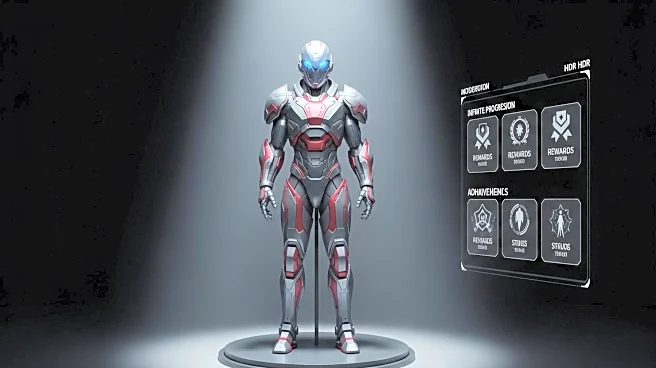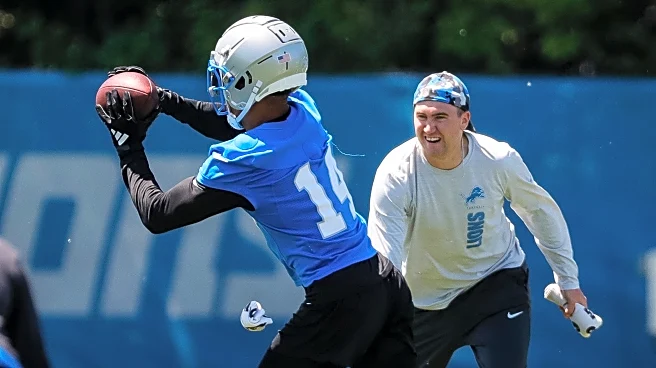What's Happening?
Battlefield 6, a popular first-person shooter game, allows players to level up indefinitely, providing a unique gaming experience with continuous progression. Players can unlock a variety of guns, gadgets, and cosmetic items as they advance through ranks. The game features a system where players can reach mastery or advanced ranks after achieving Rank 50, unlocking new cosmetic items every two levels up to Rank 100. This includes weapon charms, vehicle skins, and profile customization options. Additionally, players can complete assignments to unlock further gear, including 12 weapons and nine gadgets. The game encourages players to continue leveling up by offering tangible rewards and progression milestones.
Why It's Important?
The infinite leveling system in Battlefield 6 is significant as it enhances player engagement and retention by providing continuous goals and rewards. This approach caters to both casual and hardcore gamers, offering incentives to keep playing and exploring new content. The extensive rewards system can lead to increased player satisfaction and loyalty, potentially boosting the game's popularity and sales. For the gaming industry, such innovations in game design can set new standards for player progression and reward systems, influencing future game development strategies.
What's Next?
As players continue to engage with Battlefield 6, developers may introduce additional content updates or expansions to maintain interest and excitement. The gaming community might see new challenges, assignments, or seasonal events that offer exclusive rewards. Developers could also gather player feedback to refine the leveling system and address any balance issues. The success of Battlefield 6's progression model might inspire other game developers to adopt similar systems, leading to broader industry trends in game design.
Beyond the Headlines
The infinite leveling system in Battlefield 6 raises questions about the balance between rewarding players and potentially encouraging excessive gameplay. Ethical considerations regarding player engagement and addiction may arise, prompting discussions on responsible game design. Additionally, the focus on cosmetic rewards highlights the growing importance of personalization in gaming, reflecting broader cultural trends towards individual expression and identity within virtual environments.










